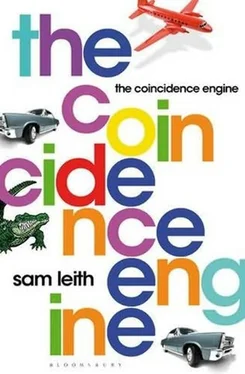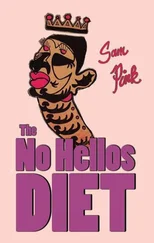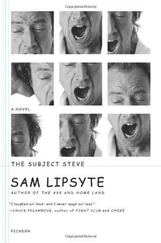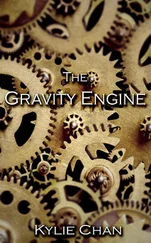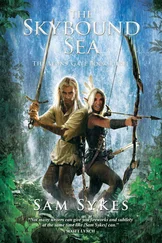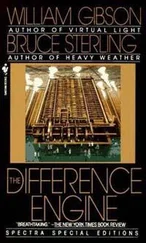Bree even tried to run with her – skip out and run to another state. She pulled Cass out of bed in the middle of the night. It would be like Thelma and Louise, just us girls, she said. She crashed the car into a hydrant, dead drunk, before they reached the end of the street. The seat belt left a purple bruise on the girl’s right collarbone and across her sternum. Bree saw it through the bathroom door, set off by the white of Cass’s training bra.
When they asked about her rock bottom in meetings, Bree always said it was waking up in the nuthouse: dawn growing blue in the awful window, and shaking with the need for something to make it go dark again. That was nearly a year later, the year she completely lost. She didn’t talk about losing Cass. She couldn’t share that.
She said to herself that that had been her real rock bottom – that had been the turning point. But what Bree could not turn to face was that losing her daughter had not been her rock bottom. She had loved her daughter, but she had loved drinking more. She had, in the early days of Cass’s absence, almost been relieved. Someone else was looking after her; someone good. She could drink safely now. Nobody was watching her.
She hadn’t loved her daughter enough to stop drinking, was what the bottom line was. That was a sentence she uttered to herself only when she was so drunk she knew she would forget it.
Every year, at the approach of Cass’s birthday, June 29th, Bree thought: this is the year when I go and find her. She could track her through the care system. She could make the correct applications. This is the year, she would think, when I go and knock on the door of her foster-parents’ home – she imagined some white suburb, somewhere warm, with a smell of oranges in the air and a clean SUV parked up in the driveway and all that baloney – and say: ‘I’d like to see Cassie.’ That would be the year when she would show the young woman who had once been her daughter a fistful of recovery medallions, and beg for her forgiveness. And then what?
She could see Cass – all the different versions, from the first sight of her. Purple face, whitened with vernix, screaming in the hospital. The double whorl in her hair. The surge of love and exhaustion as she first held her weight – her future coiled into that tiny body. The last words she had heard Cass say had been: ‘Please. I don’t want to leave my mom.’ She couldn’t see Cass now. She was a young woman and her face was nobody’s, something indecipherable, unavailable to Bree’s imagination.
Most years she went to two meetings that day, and didn’t talk about Cass. One year, early on, she came within the crack of a screw cap of a bottle of brandy from relapsing. The thought that she couldn’t do it made her desperate to take a drink; the thought that she might one day do it kept her from it.
But she had still never looked for Cass. She could not come face to face, not in that way, with the centre of her shame. She thought Cass would forgive her – and she thought that there was no way, no way on earth, that she would be able to bear that.
Are you ashamed, Jones? Can you be forgiven? Bree slept that night in a motel in Flagstaff, forty feet from where Alex Smart slept. She, too, felt the giant absence of the Grand Canyon out in the night, but exhaustion took her this time and she was almost grateful when she had the death-dream instead of any other one.
A day and a half later, Alex arrived where he was going. Las Vegas rose out of the desert like a mirage. Even from this distance, it looked like a place that someone had invented, or dreamed about after falling asleep with the central heating on too high and a belly full of Stilton.
Alex arrived in town early in the afternoon, and opened the windows to the dirty heat. He was wondering what the inside of the car smelled like. After the desert, where there was no direction but forwards, and no other cars on the road, he found himself again on multi-lane highways, being bullied by SUVs shouldering from lane to lane.
The movement of traffic pulled him down into the centre. He found himself travelling slowly, from stop light to stop light, down the broad, gaudy Las Vegas Boulevard. The Strip: it was a place at once new to him and familiar – a place that had lived, in jumbled form, in his imagination. He’d seen it overflown endlessly, by helicopter, in the title credits of CSI – the Eiffel Tower and the Montgolfier balloon traced in blue neon, the pyramid shooting a beam of light into the sky; the burlesque monumental lions outside the MGM Grand; the anonymous coppery curve of the Wynn. He’d zoomed in on it, too, in Google Earth: monumental schematics from the air; frozen images at street level; granular, gaudy and smeared with light.
Was it as he had imagined it? He didn’t know. It seemed to come pre-imagined. But it occurred to him as he drove that he hadn’t seen it in daylight before: it wasn’t intended to be seen in daylight. The concrete and stone answered the sun with a wan brightness. It looked as worn and bleached out as Christmas tree lights discovered in the attic in summer.
He drove up to the top of town, and pulled into the stacked lot of one of the older-looking, shabbier-looking hotels on Fremont Street. He parked the car and an elevator took him to the lobby. There was an old guy wearing an honest-to-goodness cowboy hat leaning on the desk, staring past the waistcoated clerk at nothing. His face was a pained squint, and red thread veins pooled at the hinge of his jaw. Nobody was attending to him. His jaw tightened and relaxed.
Alex checked in. His room was on the eighth floor – it was shabby and small and brown everywhere and it smelled of old smoke. A double-glazed sliding window in a metal frame looked out onto a stained concrete wall gridded with identical windows, the other wing of the H-shaped hotel. Past that, the view towards the north – simmering low-rise, ribboned with tan overpasses.
He felt, at that moment, exhausted. It was another four hours before he was meeting Carey. He lay down on the coverlet of the bed, and fell asleep there without even taking his shoes off.
He woke up with a feeling close to fright. The air conditioner was roaring. His mouth was gummy, his head sore and sweat had chilled on his skin. The light outside was metallic, now, and when he went to the window the facing wall of the hotel was the colour of dirty brass in the old sun.
He should have been looking forward to seeing Carey but he was feeling, again, dislocated, unworthy, indecipherable. It made him panicky.
The problem is that when I’m alone I literally cease to believe that I exist.
He said the words to himself aloud, just to feel the air across his tongue. It was something he’d remembered from somewhere, not his own thought. He looked at his rucksack. It belonged to a stranger. He rubbed the back of his neck. His watch told him it was seven o’clock. He was probably just hungry.
They had arranged to meet in the Golden Nugget at eight. Alex had suggested meeting her flight, but Carey said that’d be a drag. She had heard that the casino contained the world’s biggest nugget of gold. ‘Let’s meet there! Just you, me and a big gold rock. It’ll be cute.’
Walking into the casino was like walking into an aquarium. The door – no, the entire wall – was permanently open to the outside. It gaped. The mouth of a whale. Not an aquarium. Not just an aquarium. An aquarium and its contents. A mechanical whale, trawling for human plankton. No need to suck: just leave the mouth open and let them wash in.
Even during the heat of a cloudless day, something seemed to stop the sunshine spilling from Fremont Street into the building: a filter in the air – an invisible baleen plate. Within a couple of steps the crisp hot light bouncing off the pavement outside would be gone. There was only the indecipherable carpet, the high ceiling, and slot machines arrayed in rows and islands under the buttery artificial light. It felt like cigarettes and acid stomach and the headachy buzz you get when you pass through tiredness into the unreal underwater feeling on the other side.
Читать дальше
